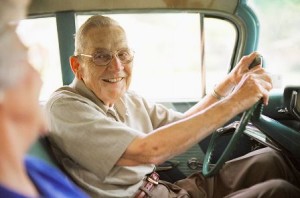Because of several medical conditions, in the last years of his life Bob was unable to fend for himself. Fortunately, he was able to stay at home with the help of his family and a team of caregivers providing home care. Bob’s children oversaw his medications and doctor’s visits. They took him to the electronics store so he could buy the latest gadget, boiled him lobsters, and brought him Dilly Bars for dessert. The caregivers helped in a variety of ways, from keeping Bob safe in the shower to keeping him company. He looked forward to visits from one caregiver in particular who often took him out to lunch.
But this is not really a story about Bob. Instead, it’s about his wife, who did muchof his home care and was frequently emotionally and physically exhausted. Whenever her children or one of the home care providers arrived to help, she would usually be waiting by the door with her car keys. For the next few hours she would either drive aimlessly through nearby neighborhoods and towns or purposefully to garage sales and second hand stores.
 Bob was always a social man and it was fitting that when he passed away, he was encircled by his wife and children. The next several days and weeks were hectic and while the children noticed that their mother seemed somewhat confused and distant they attributed it to stress and grief.
Bob was always a social man and it was fitting that when he passed away, he was encircled by his wife and children. The next several days and weeks were hectic and while the children noticed that their mother seemed somewhat confused and distant they attributed it to stress and grief.
A few months later, she became ill and needed to spend a few days in the hospital. The illness seemed to knock her off her feet and when she went home it became clear to her daughters that she couldn’t be left alone. They took turns spending days and nights with their mother and slowly she became stronger. But because they were focused entirely on her during this time and not distracted by caring for their father or attending to the multiple demands in their own daily lives, they noticed some worrisome signs.
As it turns out, Bob’s wife had early Alzheimer’s disease and today, just a few years after her husband’s death, like him she must depend on her family and home care providers for assistance.
Her children can now look back and recognize the warning signs. It would be easy to feel guilty for not picking up on them sooner, but they simply didn’t know. It wasn’t helpful to ask their mother if everything was ok, because she always said, “Everything is fine. Thank you for asking, but please don’t worry about me.”
Would you know the signs that an elderly person you love needs help at home?
Signs your elderly loved one may need home care
•Loss of balance, difficulty walking, falling
•Confusion about performing once familiar tasks
•Poor grooming or personal hygiene
•Change in physical appearance
•Change in eating habits
•Weight loss
•Memory loss
•Decreased energy, increased fatigue
•General confusion
•Depression or unusual lack of interest
•Decreased communication
•Change in sleep habits
•Bruises that might indicate falling
•Burns that might indicate difficulty operating the stove
•Difficulty concentrating
•Poor judgment
•Personality change
•Missed appointments
•Spoiled or outdated food in the refrigerator
•If still driving, recent accidents or near misses
•Dirty house, piled up laundry
•Missed or mishandled medications, unfilled prescriptions
•Yard no longer being maintained
•Pots and pans with noticeable burn marks
•Smell of urine in the house
•Gets lost easily
•Unopened mail, unpaid bills
•Collection or late notices
If you recognize any of these signs, we recommend a thorough medical evaluation. It’s possible that whatever is wrong is something that can be easily treated. Or it could mean that your loved one needs assistance with a little home care.
This post is reprinted with permission fromthe blog of Advantage Home Care, a Maine Senior Guide resource.